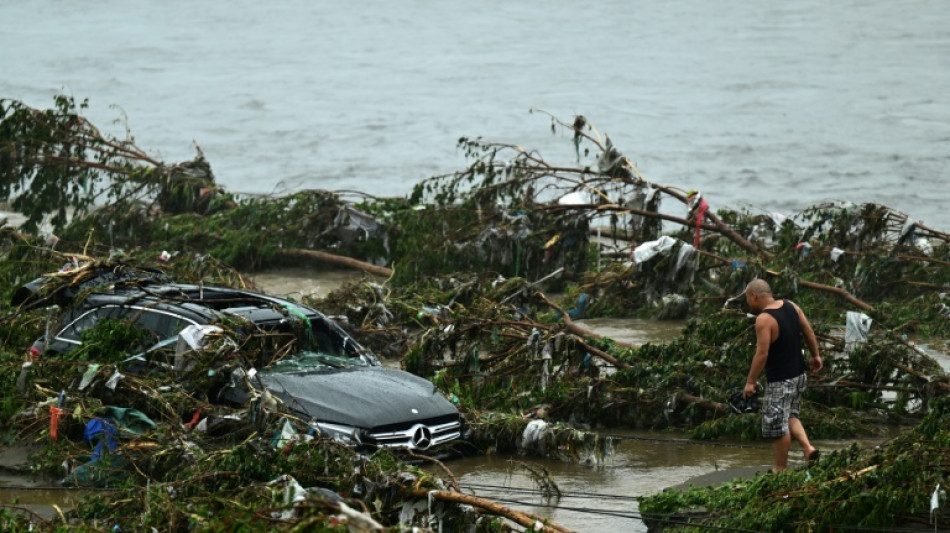
SCS
0.0200


Deadly rains that pummelled China's capital in recent days were the heaviest since records began 140 years ago, the city's weather service said on Wednesday.
"The maximum (amount) of rainfall recorded during this storm, which was 744.8 millimetres, occurred at the Wangjiayuan Reservoir in Changping," the Beijing Meteorological Service said.
It was the "heaviest rainfall in 140 years", when Beijing records began, it added.
The largest volume previously recorded was 609 millimetres in 1891, the service added.
Storm Doksuri, a former super typhoon, swept northwards over China after hitting southern Fujian province last week, following its battering of the Philippines.
Heavy rains began pounding the typically dry capital and surrounding areas on Saturday.
The amount recorded in just 40 hours neared the average rainfall for the entire month of July.
State media warned last week that 130 million people would be affected by the extreme heavy rainfall across northern China.
Swathes of suburban Beijing and surrounding areas remain badly hit by the rains, with state media reporting 974,400 people have been evacuated in the capital and neighbouring Hebei province.
However authorities in the capital lifted the red alert for flooding on Wednesday morning "as the water flow in major rivers has gone below the warning mark", Xinhua reported.
- Clean-up drive -
With rainfall easing, the focus moved to the relief operation with hundreds of rescue workers from the Chinese Red Cross being sent to hard-hit areas to clean up debris and help evacuate victims, state news agency Xinhua reported.
On Tuesday, state broadcaster CCTV said that the rains had killed at least 11 people in Beijing, two of whom were workers "killed on duty during rescue and relief".
Thirteen people were still missing, but another 14 had been found safe, the broadcaster said.
In neighbouring Hebei province nine people were killed and six were missing, it said.
Another two casualties were reported in northeastern Liaoning province over the weekend.
President Xi Jinping on Tuesday called for "every effort" to rescue those "lost or trapped" by the rains.
And visiting a relief work site in Beijing's Mentougou -- one of the capital's hardest-hit areas -- vice premier Zhang Guoqing urged "all-out" efforts to rescue those still missing.
"The top priority of the current work is to save people's lives, race against the time to search for the people missing or trapped and minimise casualties," Zhang said, according to state news agency Xinhua.
China has been experiencing extreme weather and posting record temperatures this summer, events that scientists say are being exacerbated by climate change.
The country is now on alert for the arrival of typhoon Khanun, the sixth such storm of the year, as it nears China's east coast.
A.Sun--ThChM